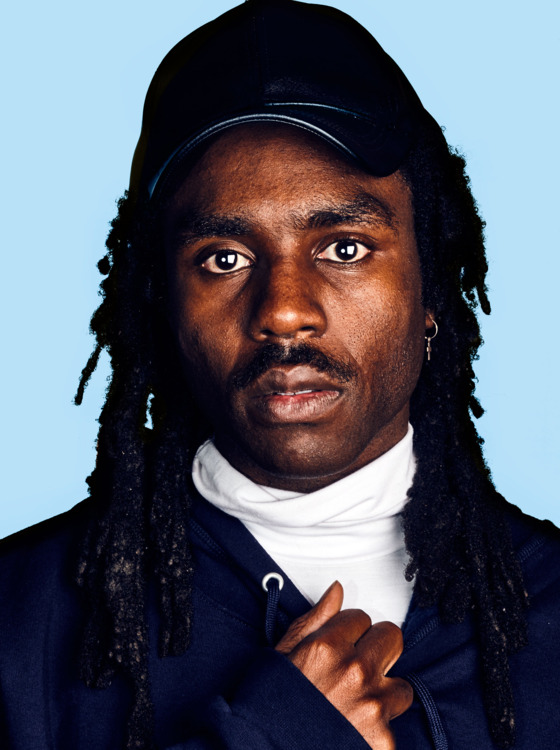 |
(Photo: Bobby Doherty/New York Magazine) |
If it’s possible to pinpoint the exact moment that Carly Rae Jepsen became something resembling cool, it might have been April 5 of this year. Jepsen, the chirpy Canadian best known as the voice of “Call Me Maybe,” was appearing on Saturday Night Live in support of her new album. For her second song of the night, she appeared on a darkened stage and, backed by a wash of woozily sparkling keyboards, began to sing: “I wanna play this for you all the time / I wanna play this for you when you’re feeling used and tired.” Next to her in the spotlight, a tall black guy with shoulder-length dreads in a leather jacket, cuffed jeans. and an embroidered rastacap played guitar and mouthed every word.
The song, “All That,” sounded sophisticated, sad, like a prom slow dance beamed in from some John Hughes movie of the future—all thanks to that guy playing guitar: the producer and writer Devonté Hynes. Hynes is not the latest protégé of the Swedish hit factory, nor is he part of the proliferating L.A. scene; he lives in the East Village and collaborates only with singers who are willing to meet him for a cup of coffee. But he has a way of transforming the pop singers he works with—like Solange Knowles, Jessie Ware, Tinashe, Sky Ferreira, and, now Jepsen. His songs are not slick pop juggernauts designed to conquer radio; they are atmospheric, layered productions that bring to the fore a voice worth listening to.
“Sometimes I think it’s fun to write music the way other people might imagine your music style. So for ‘All That,’ I was kinda going toward what I think people think I sound like,” Hynes says. “Maybe because I’m of color and playing guitar and singing, I get associated with Prince a lot. So for that song, I was like, ‘Well, I can do that, but I’m going to make it really fucking good.’ ” Jepsen sought him out for the song (she was a fan of Blood Orange, his own band) and he added simple, nondigital instrumentation: Linn drum machine, Juno keyboard, bass guitar. Then he sent it to his friend Ariel Rechtshaid (a producer-writer in L.A.), “to put his Ariel sheen on it. He had the idea of speeding it up—which makes sense because all of my songs are really slow,” Hynes says. It was a process emblematic of the collaborative approach that distinguishes Hynes’s work. “I think I’m actually better at ideas, and then people like, run with it?” he says. “I have my opinion of what makes something good, but I leave it open to another opinion. I get Carly’s input, I get Ariel’s input, and all of a sudden I’m like, Holy shit, this track is fucking good!”